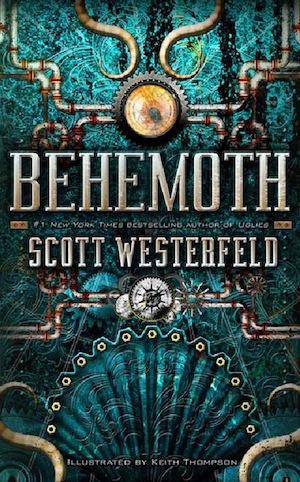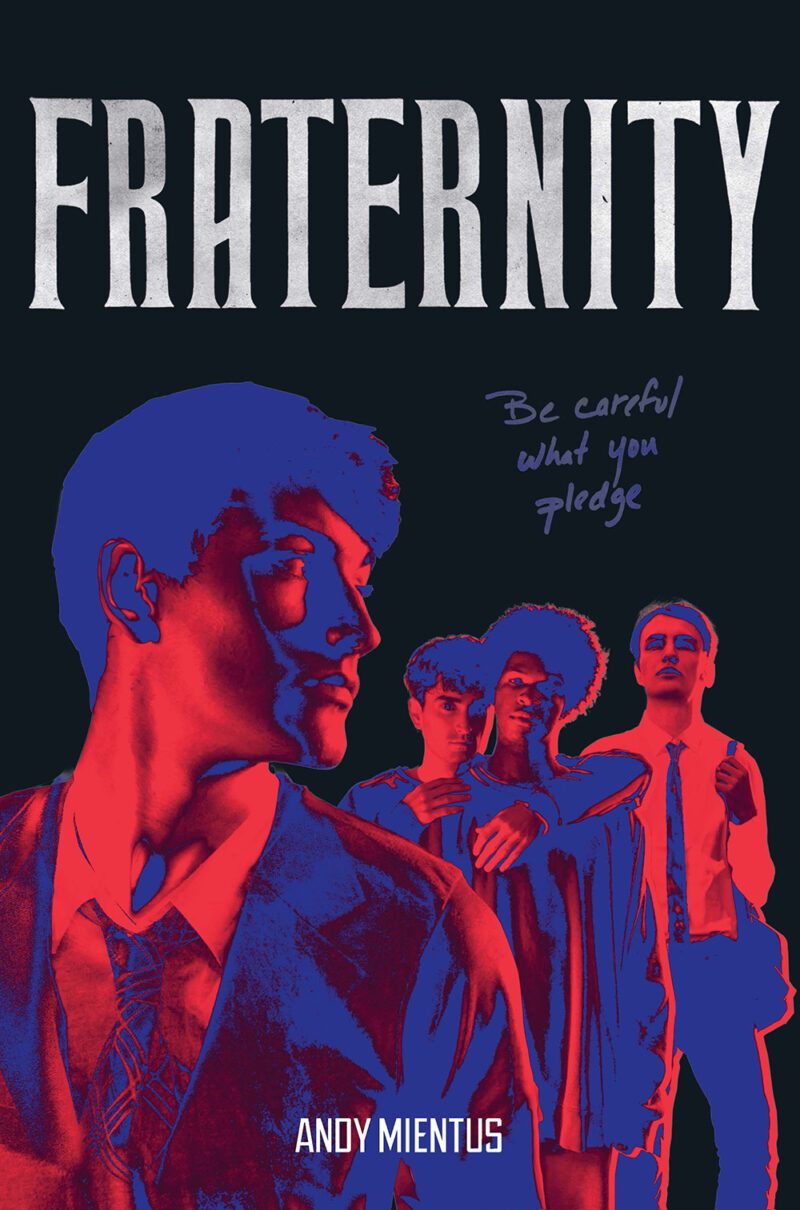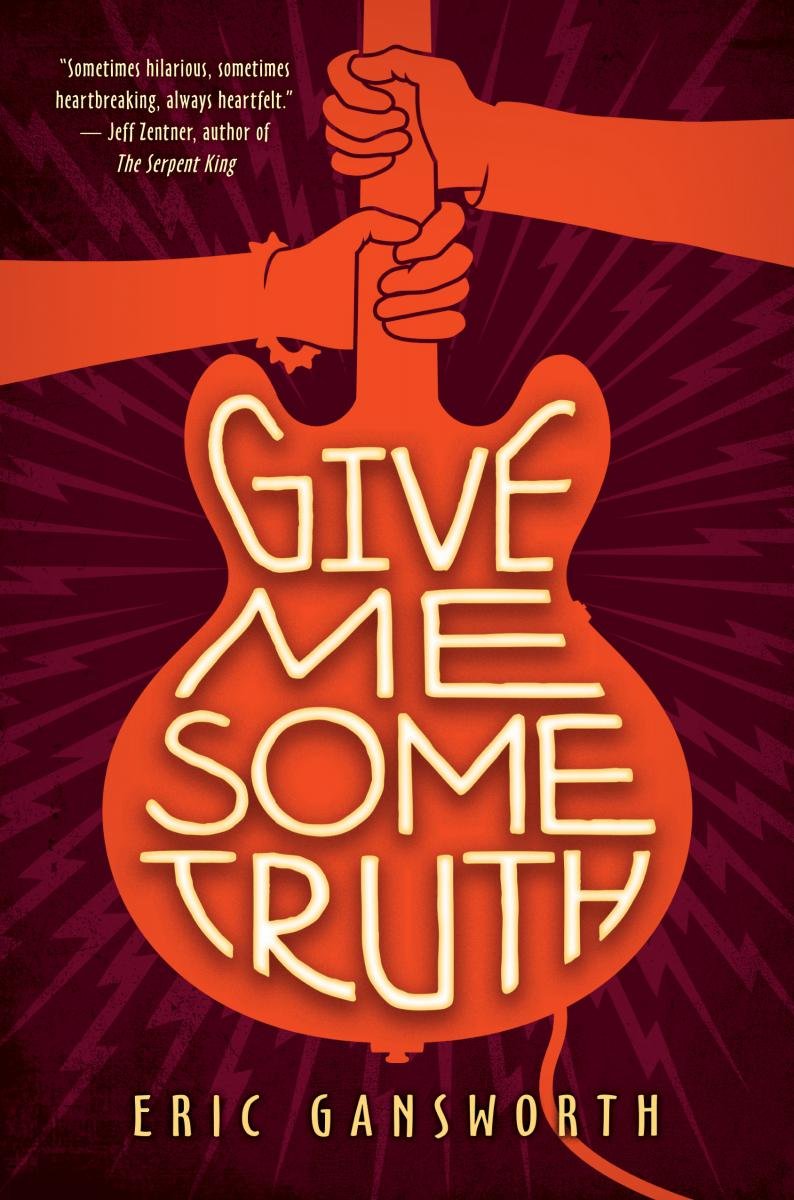[button color=”black” size=”big” link=”http://affiliates.abebooks.com/c/99844/77798/2029?u=http%3A%2F%2Fwww.abebooks.com%2Fservlet%2FSearchResults%3Fisbn%3D9781416971764″ target=”blank” ]Purchase here[/button]
In Book 2 of the Leviathan trilogy, an alternate-history version of World War I continues to play out between two great powers of Europe: the Clankers, whose war machines have advanced at an accelerated rate to include walking tanks and helicopter drones, as well as planes, submarines, and battleships; and the Darwinists, who have replaced mechanical technology with bio-engineered monstrosities such as the whale-sized, hydrogen-breathing airbeast Leviathan, known to our protagonists as home.
But the friendship between Alek and Dylan has become increasingly complicated. For one thing, Alek lets Dylan in on the secret that he is the rightful Archduke of Austria, heir to the elderly Emperor, and if he can hang on until the Emperor dies, he may be in a position to stop the war. But Alek is caught in a tricky situation when Austria enters the war on the Clanker side. Now he is at best a prisoner of war; if his secret gets out, he may even be forced into the role of traitor to his people. Meanwhile, Dylan hasn’t yet figured out how to tell Alek that he is really a girl named Deryn, who posed as a boy in order to get into the air service and who now carries a hopeless torch for a young prince who can never, ever get romantically entangled with a commoner. And now their friendship and loyalties are put to the test in a diplomatic disaster over the Ottoman Empire’s capital Istanbul, where the Clankers have all but sealed the deal on the Turks entering the war on their side, and where a lady boffin (i.e., scientist) is hatching a genetic surprise that may tilt the balance of power.
Things get out of hand before you can say, “Barking spiders!” Alek makes a reluctant escape from the Leviathans, only to get caught up in a popular revolution. Uncomfortable in his role as a freedom fighter (given that he is first in line for the throne of a vast empire), Alek nevertheless contributes the last of his Archduke father’s hoard of gold and a genius for driving walking battle machines to the cause of keeping the Ottomans out of the war. He also obtains a new grandmother and the friendship of a beautiful female warrior. At the same time, Deryn has fallen to earth in a secret sabotage mission that has gone pear-shaped, and her only way out is through a furious and deadly battle that tests all her courage, loyalty, and strength. Caught between a prince who can never love her and an amorous girl she can never love (well, probably not…??), Deryn plays a crucial role in the fate of nations while risking, at every turn, putting her head in a noose for treason or mutiny. Nevertheless, her greatest test remains ahead, along with whatever difference Alek is meant to make in his alternate history of the 20th-century world. But to find out about that, you’ll have to get the third book in this trilogy: Goliath (released in September 2011).
In my frank opinion, this is a smashingly entertaining series, sparkling with verve, derring-do, technological magic and scientific wonder. The main characters effervesce with personality, their catch-phrases and slang words are infectious, and their situation brims with whimsical humor, romantic tension, and a grim sense of fast-approaching obstacles to their happiness, and to the survival of millions across Europe—obstacles that threaten to be impossible to overcome. While the book is innocent of anything requiring an “adult” or “occult content advisory,” however, I feel it is my duty to let concerned Christian parents know that among the conceits of Westerfeld’s fantasy world is the assumption that Darwinism could (should? already has?) debunked the “superstition” and moral scruples of Christianity. One of the tensions between Deryn’s and Alek’s respective worlds is, after all, the spiritual repugnance that Clankers (as Christians) hold toward the Darwinists’ “abominations.” You may want to take this into account as you decide whether to gift these books to your kids, or in planning to discuss the series with them as you read it together. Either way, I believe this book will bring teens (and upward) enjoyment, enrich their inner world, and perhaps even stimulate them to explore the amazing worlds of history, mechanics, genetics, and the culture of what is now Turkey, all on their own.



